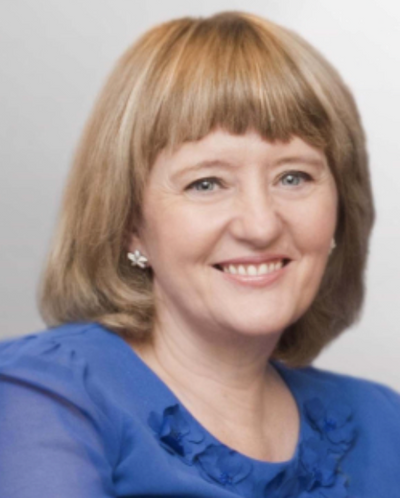Baroness Margaret McDonagh
26th June 1961 – 24th June 2023

Obituary by The Orthopaedic Research and Education Foundation (OREF) Trustees
Numerous newspaper, radio, television and parliamentary tributes have been paid to Margaret McDonagh, Baroness McDonagh of Mitcham and Morden. None of the tributes have mentioned Margaret’s role in persuading the government to establish the South West London Elective Orthopaedic Centre (SWLEOC) or her role as Chair of the Orthopaedic Research and Education Foundation (OREF), a charity set up to support research and education at SWLEOC.
Margaret was born and brought up in Mitcham. When her school refused to enter her for O-levels, Margaret took a weekend job, in a corner shop, to earn the money for her examination entrance fees. Margaret’s determination to overcome challenges remained a hallmark of her life and when she secured employment with the Labour Party, her organisational abilities were rapidly recognised. She rose to become the Party’s first female and youngest ever General Secretary. It was in this role that Margaret masterminded and co-ordinated Labour’s landslide victory in 1997 and the party’s re-election in 2001.
When her sister, Siobhain, the newly elected member of Parliament for Mitcham and Morden, alerted Margaret to the frustration of local clinicians unable to address the long NHS waiting lists for hip and knee replacement, Margaret helped convince Frank Dobson (then Secretary of State for Health) of the need for a ring-fenced, centre dedicated to this work. Margaret and Siobhan were relentless and their efforts were rewarded when Alan Milburn approved funding to establish SWLEOC, a first wave NHS Elective Orthopaedic Centre. Almost two decades have passed since the centre opened. SWLEOC is the UK’s highest volume provider of hip and knee replacements and is recognised for its excellence in delivering the highest standard of timely NHS care. It has become the model for the UK’s national programme of Elective Hub Centres. Like so many of Margaret’s achievements, her role in SWLEOC’s inception and her intercessions to support the centre were never publicised.
In the months before SWLEOC opened, Margaret guided the SWLEOC research team to access the most senior figures in the UK’s leading medical research charities and fund giving bodies. Undeterred by their reticence to support research at a new and untested centre, Margaret persuaded her friends to join the SWLEOC OREF Trustee board and share their financial, legal and media advice on a pro bono basis. For almost two decades, Margaret printed letters, donation forms and information leaflets. Never seeking or accepting a penny for the material, time or work that she undertook for the centre. Margaret was patient and kind. She encouraged and thanked all the staff and patients who worked on fund-raising projects. None would have ever guessed that they were standing beside the woman who had masterminded the regeneration of a national political party or been able to park her Vauxhall Nova outside number 10 Downing Street. Margaret will be missed and we were honoured to know her.
